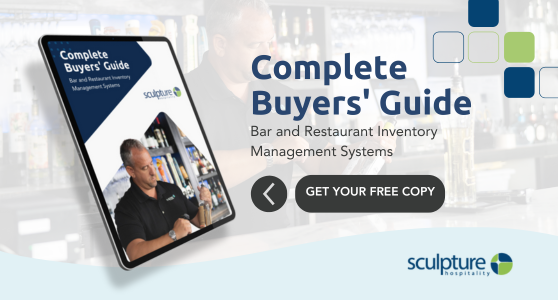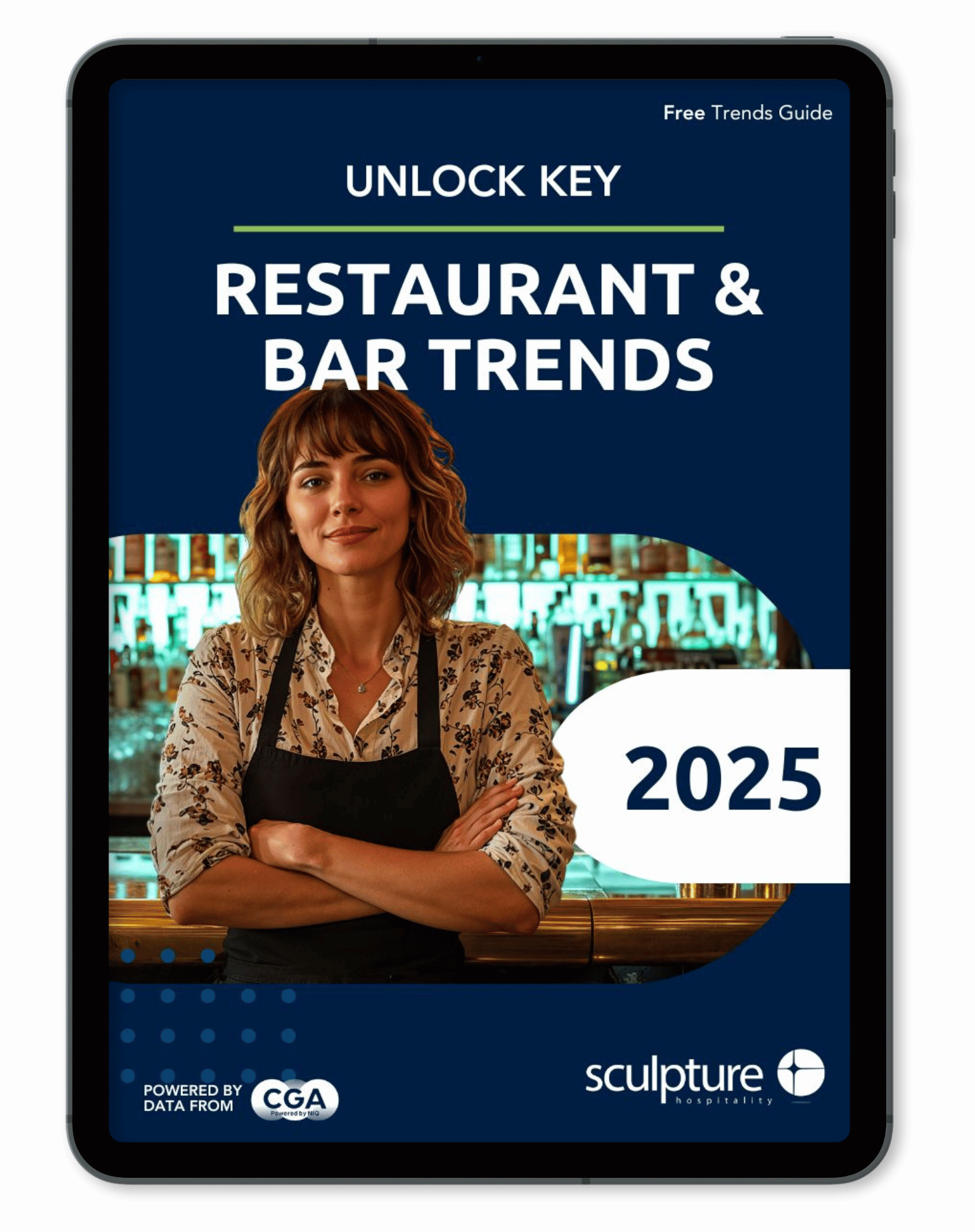The heart of any thriving restaurant beats within its management team. Your restaurant manager - if you have one - is the bridge between your vision as the owner and exceptional daily operations.
They're responsible for motivating staff, ensuring smooth service flow, and ultimately, creating a dining experience that keeps customers coming back for more.
So, how do you equip these leaders with the skills they need to succeed? This blog will equip you with the knowledge and tools to develop a restaurant management training program that empowers your managers to excel.
Essential Skills for Restaurant Managers Before You Get Started
Before you jump into training your next restaurant manager, take a moment to consider the crucial skills they'll need to excel - this is particularly important if you are hiring your first-ever restaurant manager.
The following skills form the foundation for a successful management team and a thriving restaurant.
- Leadership: Great managers are the glue that holds your team together. They inspire confidence, delegate tasks effectively, and cultivate a positive work environment where everyone feels valued and supported.
- Communication: Clear and concise communication is key. Managers need to effectively relay information to staff, address customer concerns, and communicate with vendors to ensure smooth daily operations.
- Conflict Resolution: Disagreements happen. While your restaurant can minimize them, you’ll still have them to some extent. Equipping your managers with conflict resolution skills ensures they can address issues calmly and professionally, minimizing disruption and maintaining a positive work environment. The right manager can help turn disagreements into healthy outcomes that better your business and staff morale.
- Customer Service: Happy customers are the cornerstone of your restaurant's success. Managers need to prioritize exceptional customer service, ensuring every guest has a positive dining experience.
- Operations Management: From scheduling and restaurant inventory control to food safety and cost management, a strong understanding of all aspects of restaurant operations is essential.
10 Tips to Train Your Restaurant Manager
1. Define Your Training GoalsBefore diving into your restaurant manager training program, it’s first important to identify the core competencies you want your managers to possess. This could include anything from scheduling and inventory control to customer service and conflict resolution.
Spend time outlining the specific skills and knowledge gaps you want to address within your management team. This will help you tailor your training program to deliver the most impactful results.
2. Choose How You’ll Deliver Your Training ProgramThere's no one-size-fits-all approach to restaurant management training. Here are some effective methods to consider:
- On-the-Job Training: Learning by doing is a valuable tool. Pair new managers with experienced team members for hands-on experience.
- Classroom Training: Dedicate time for structured learning sessions covering leadership skills, operational procedures, and industry best practices.
- Mentorship Programs: Pair new managers with seasoned mentors who can provide guidance and support. This is particularly useful for multi-site restaurants that already have successful managers in place.
- Online Resources: Utilize online courses, tutorials, and industry publications to supplement your training program.
Clearly outline the specific duties and responsibilities of your managers. It’s important to align their goals with the overall goals of the restaurant to ensure everyone is working towards the same vision. Don't just hand them a generic job description; take the time to clearly define their daily tasks, from overseeing staff scheduling and performance reviews to managing inventory and ensuring smooth service flow.
Equally important is establishing clear objectives and aligning them with the restaurant's overall goals. For example, an objective might be to reduce food waste by 10 percent within the next quarter. This not only provides direction but allows you to track progress and measure the effectiveness of their efforts.
4. Ensure Managers Can Seamlessly Use Your Tech (Including Your Inventory Management System!)As we always discuss here at Sculpture Hospitality, technology plays a vital role in modern restaurants. It’s critical that you train your managers on all relevant technology, including your point-of-sale system and your inventory management system.
By utilizing technology, your restaurant manager will be able to make data-driven decisions that improve the operational efficiencies and profit margin of your business.
Are you in need of an inventory management system that better suits your business and helps you hit those profit margin goals? Check out Sculpture Hospitality’s Complete Buyers' Guide to Inventory Systems.
5. Teach Your Managers How to Train Your Staff Members
Developing strong leadership skills also extends to training your staff. By equipping your managers with the tools and techniques to effectively train new team members, you can foster a culture of continuous learning within your restaurant where your staff members are able to progress in their careers.
6. Offer recognition and Rewards to Retain ThemLast but not least, it’s crucial that your business acknowledges and rewards your managers for their hard work and achievements. By showing them that their contributions are valued, you’ll motivate them to continue exceeding expectations, and, most importantly, continue employment with your business long-term.
Deciding Between Hiring In-House or Externally
Once you've established your training program, it's time to consider your restaurant manager hiring options. Do you want to hire from your existing in-house team, or do you want to bring in an experienced restaurant manager?
Here are some factors to weigh when deciding whether to promote from within or hire an external candidate:
- Skills and Experience Gap: Does your existing staff possess the necessary skills and experience for a management role? If there's a significant gap, you might need to consider an external hire.
- Leadership Potential: Look for team members who demonstrate leadership qualities, such as initiative, problem-solving skills, and the ability to motivate others.
- Company Culture: Promoting from within can foster company culture and loyalty. Staff who see a clear path to advancement are more likely to be engaged and invested in the success of the restaurant. However, an external hire can bring fresh perspectives and new ideas to the table.
- Time Constraints: Do you have the time and resources to invest in training a new manager internally? Hiring an experienced manager from outside can provide a quicker solution in some cases, although rather than taking the time to train them as a manager you’ll have to take the time to get them familiar with your business values and the way your team operates.
Investing in Your Restaurant Manager is Investing in Your Future Success
By prioritizing restaurant management training and making thoughtful hiring decisions, you're laying the foundation for a strong leadership team that will drive your restaurant's success. Remember, your managers are an essential part of your team. Empower them to excel, and your restaurant will grow as a result.
Need help improving your restaurant’s operational processes and driving new profit growth? Learn how Sculpture Hospitality’s team of inventory management experts can help you achieve your goals.







%20-%20blog%20banner.jpg?width=520&height=294&name=Your%20Complete%20List%20of%20Restaurant%20Industry%20Statistics%20(2025)%20-%20blog%20banner.jpg)



